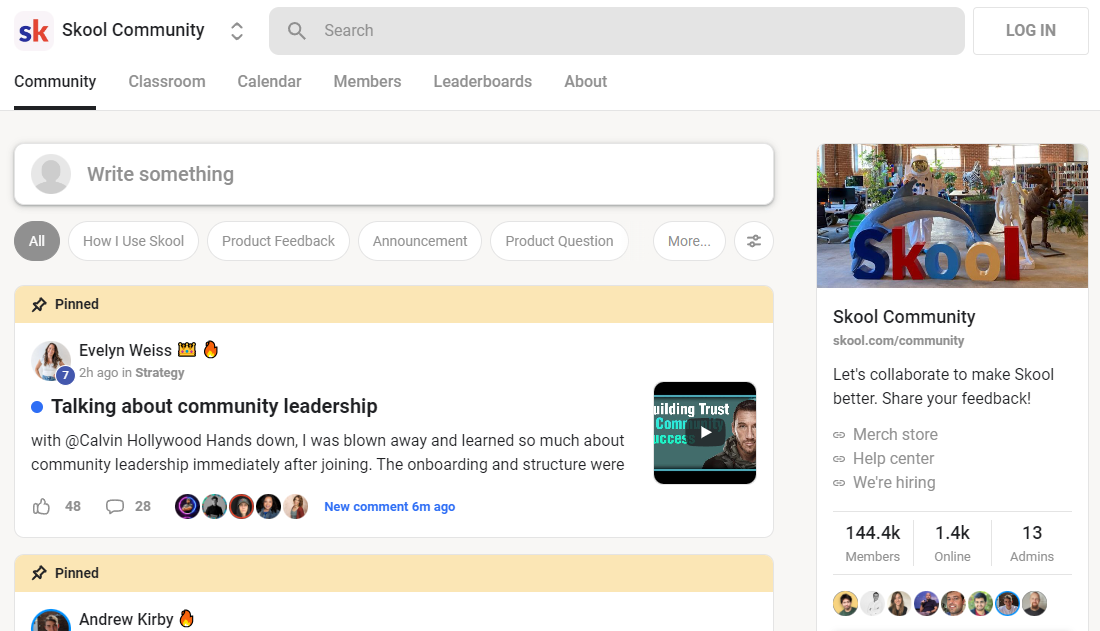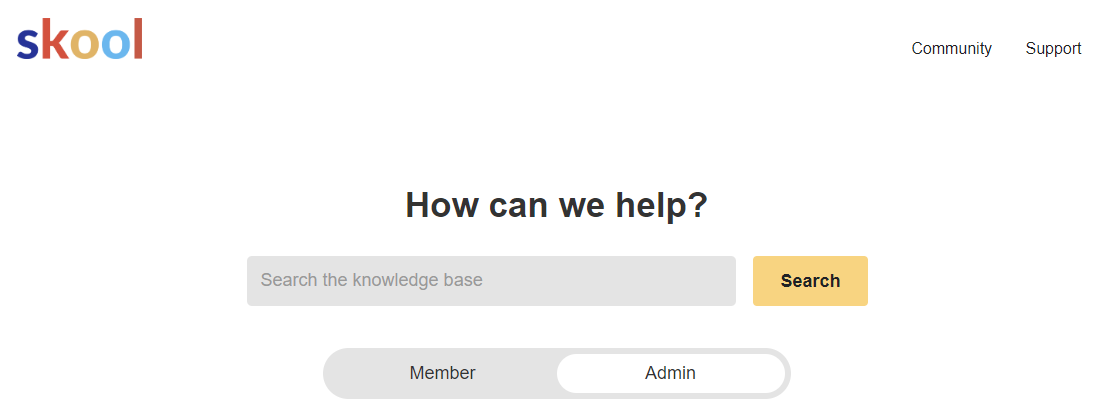Skool supplies best-in-class gamification functions that increase engagement. As an example, participants can earn degrees based upon their participation, which unlock training course content and various other benefits that further encourage them.
Formerly, makers had to utilize various tools for organizing training courses, developing areas and managing email advertising. This developed a disjointed experience for both creators and their target markets.
Creating Courses
Skool has a straightforward, easy to use interface and focuses on community building and course holding over various other features. It permits developers to create a vivid neighborhood for their training courses and coaching programs by connecting them with the appropriate target market. This likewise helps them keep track of the wellness of their content business with the help of an easy dashboard.

To begin, a person can register for a totally free 14-day test of Skool. Afterwards, they can pay $99 a month for the platform to organize a solitary area. There are no other pricing alternatives offered for the moment. Skool likewise refines repayment and pays makers weekly, yet it does bill a 2.9% purchase fee.
One of the distinct elements of Skool is that it can be made use of to develop interactive training courses. These can consist of real-time webinars, group jobs and real-time conversations. These types of training courses urge participation and boost course completion prices. In addition, Skool’s gamification features aid to encourage community involvement. As an example, participants can make factors and unlock program material when they get to details degrees in the community.
Customers can additionally make use of the social feed upon Skool to post updates and connect with others in the community. The feed resembles a Facebook team, but with an extra regulated means of publishing. This aids to avoid the sort of spam and misuse that occurs on various other social systems.
Taking care of Communities
Skool is a very basic platform to use, for both members and admins. Its simplicity is among its primary selling points– when a person joins your neighborhood they won’t be confronted with a number of options or functions that can thwart their experience and puzzle them.
The platform starts as a personal team by default, yet you can easily change this to open your neighborhood to anybody that you wish to belong to it. When you’ve done this you’ll see a social feed like you would certainly on Facebook Groups or WhatsApp (yet without all the rip-off things and swearing).
You can also add a classroom tab to your neighborhood that you can use to share educational web content with your participants. This feature is particularly helpful for neighborhoods that are concentrated on discovering or professional development as it helps to produce an educational framework and makes it very easy for members to track their progress. Furthermore, the system has gamification elements that permit members to earn factors by suching as messages or remarks. When they reach a specific level they can open resources, such as courses, further driving engagement.
The other cool point is that Skool has a mobile app, much like Mighty Networks or Slack, so participants can keep up with your area and connect on the move. This is an excellent way to encourage and engage your members and to help them obtain support from each various other when they require it, instead of just turning to you for solutions.
Skool Community
Skool concentrates on gamification, enabling users to earn points and badges for their payments. This encourages members to engage with the area and contribute to conversations. Consequently, this helps them level up and unlock advantages like video clips and various other content. Admins can also establish training courses to be unlocked at details degrees to further drive involvement.

The Skool interface is spick-and-span and instinctive. Its main features consist of the Community tab, which looks just like a Facebook group feed. Below, customers can publish comments and message in addition to upload pictures, web links and videos. Members can additionally view each others profiles and get in touch with them. Moreover, users can produce exclusive teams in the community to review certain subjects.
Another feature of Skool is the Classroom tab, which is similar to a YouTube livestream or Zoom meeting. Utilizing this, managers can host trainings and webinars for their students. They can also include events in the calendar to stay upgraded on upcoming events and Skool Community.
However, some elements of Skool could utilize renovation. For example, the system isn’t adaptable when it comes to monetization as users can not offer numerous pricing tiers for their training courses and community subscriptions. In addition, the tool does not have an e-mail advertising and marketing feature, which may be an offer breaker for some course makers. It also does not have indigenous video clip organizing, meaning that users need to utilize exterior platforms like YouTube, Loom and Vimeo for their videos.
Including Content
The procedure for including material and interacting with participants on Skool is easy and straightforward. Admins can develop articles with text, GIFs, video clips and surveys. They can also include event calendars to notify community members of upcoming group Zoom calls or live streams. Additionally, they can make use of Skool’s email broadcast attribute to send out a message to the entire neighborhood with a single click. This eliminates the demand for tagging and list division, which can be cumbersome.
Moreover, Skool’s gamification functions can improve involvement and individual retention. It urges participants to interact with the material often by compensating them with various advantages. These include unlocking program content, earning factors and earning a spot on area leaderboards.
While Skool provides a host of valuable attributes for producing and supplying on-line programs, it’s not for every person. The system is best for trains, consultants and other info business owners. However, the price tag can be a barrier for some people looking to monetize their online web content.
Additionally, the lack of standard rates and a brief free trial might be a deterrent for several. In addition, the system’s laser-focus on eLearning can make it much less desirable for people that want to offer various other digital products. Nonetheless, in spite of these drawbacks, Skool Community is still a viable alternative for anyone seeking to develop and monetize on the internet training courses.